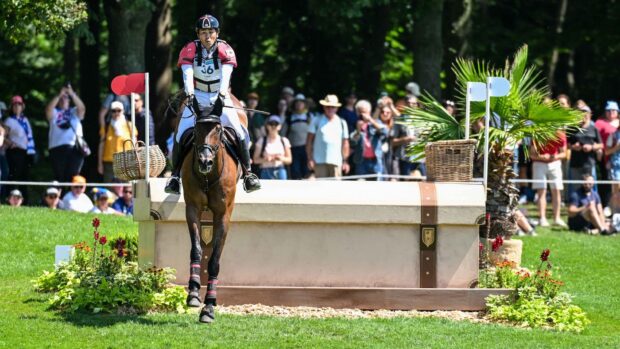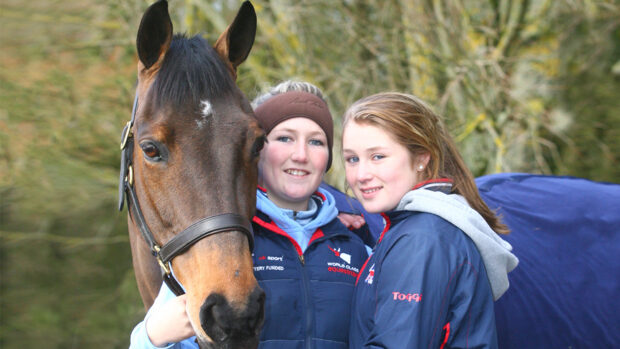The Windrush Equestrian Foundation is rebranding to the Wesko Equestrian Foundation as part of its continued expansion within the eventing world.
The non-profit organisation, founded in memory of eventing owner Christina Knudsen, supports young event riders through education and training.
It is expanding its outreach programme, which will initially involve increased collaboration with Ebony Horse Club in London, and is also extending its support to young event riders with the introduction of the “young eventers pathway”.
“As an organisation, our bottom line has always been learning. But learning is the investment of a lifetime and a process that never stops, and although the foundation was named in good faith after the property that Ms Knudsen owned, the foundation’s board has become increasingly cognisant of the complicated history of this name,” said a spokesman for the foundation.
“One of the primary lessons that aspiring professionals under the foundation’s tutelage learn is that to progress, you have to own and accept the wrong turns made along the way. As such, we’re retiring the name of Windrush and moving forward with Wesko as our figurehead.”

Christina Knudsen, pictured with Wesko and Tim Price.
The new name honours Ms Knudsen’s CCI5* winner Wesko, who was campaigned by New Zealand’s Tim Price. Following her death, the foundation took on ownership of the 2014 Luhmühlen winner, whose career highlights also included coming second at Kentucky and two third-place finishes at Pau. Wesko retired from competition in May 2021, aged 19.
“As we continue to expand the newly rebranded Wesko Equestrian Foundation, our plans include the furthering of the outreach programme, which initially will see increased collaboration with the Brixton-based Ebony Horse Club, an excellent initiative that allows children from a diverse array of backgrounds to experience the joys of riding and horse care,” the spokesman said.
“For many of these children, the name ‘Windrush’ doesn’t evoke pastoral scenes of upper-level equestrian opportunities, and nor should it – instead, it refers to the generation of Caribbean expatriates who arrived in Great Britain in the decade following World War II and played an enormous part in rebuilding their adopted country’s economic system, often facing unspeakable discrimination and racial violence along the way,” added the spokesman.
“Even now, the Windrush generation faces ongoing trauma. Our decision to step away from our former moniker is one made out of respect to the Windrush generation and their descendants, many of whom we hope to welcome into our programme in the coming years. Our intention has never been to detract from their stories.”
The foundation’s upcoming events include Tim spending a day teaching at Ebony in the near future, plus the launch of the young eventers’ pathway from 15 to 16 March.
The pathway will involve a funded training day for 40+ riders, aged between 21 and 28, at the British Showjumping National Training Centre in Hothorpe. Philip Surl, Dickie Waygood and Nikki Herbert will be coaching, and there will also be access to the foundation’s wider support team.
“The goal at the heart of the foundation continues to be, bringing increased education and training to talented young event riders to support their futures, with the welfare of the horse and rider at the heart of the programme,” added the spokesman.
What is the Windrush scandal?
Thousands of people, including children, arrived legally in the UK from Commonwealth countries in the middle of the last century.
They are known as the Windrush generation, in reference to the Empire Windrush ship that brought workers from the Caribbean to Britain in 1948.
The 1971 Immigration Act gave Commonwealth citizens already living in the UK indefinite leave to remain. But the Home Office kept no record of those granted leave to remain and issued no paperwork. Added to this, it destroyed Windrush-era landing cards in 2010.
This made it extremely difficult for people to prove they were legally allowed to be in the UK. In 2012, changes to immigration laws required people to have documentation to work, rent a place to live and access services such as healthcare.
People wrongly faced the threat of deportation; and the number of people who were wrongly deported is believed to be around 83.
In 2018, then British prime minister Theresa May (who was home secretary between 2010 and 2016) apologised, as did home secretary Amber Rudd. Ms Rudd confirmed new measures to help, which included compensation. Nearly four years on and many who have applied for compensation “have yet to receive a penny”, according to a Government response to a home affairs committee report into the scheme issued last week (7 February).
You might also be interested in:

Subscribe to Horse & Hound magazine today – and enjoy unlimited website access all year round

Five-star winner out of Tokyo contention as he retires from top-level competition
‘We have had so much fun together, so I have a lot to be thankful for. Above all he’s my

Veteran five-star eventer Wesko — ‘We thought if nothing else, he’d be easy to sell as he was such a cool dude’ *H&H Plus*
Horse & Hound magazine, out every Thursday, is packed with all the latest news and reports, as well as interviews, specials, nostalgia, vet and training advice. Find how you can enjoy the magazine delivered to your door every week, plus options to upgrade your subscription to access our online service that brings you breaking news and reports as well as other benefits.



